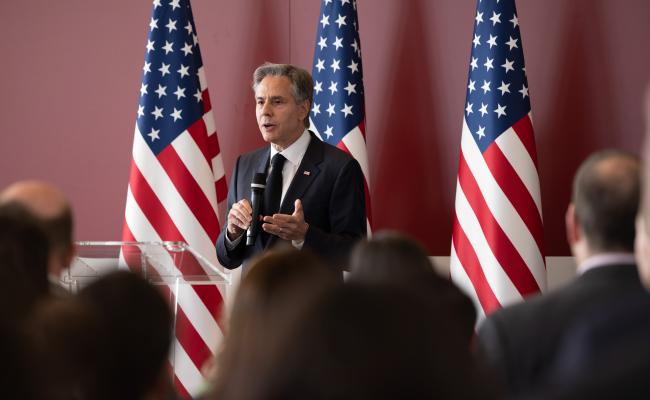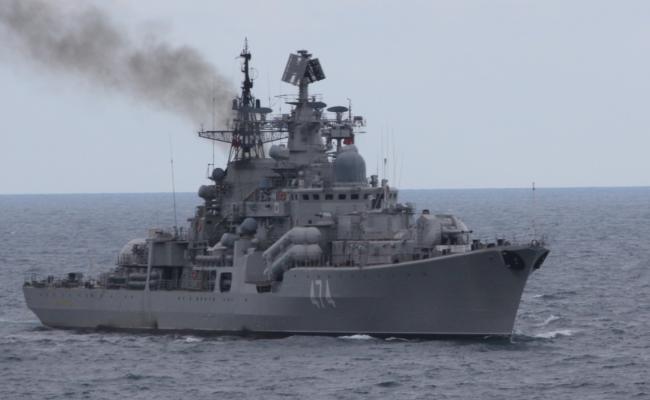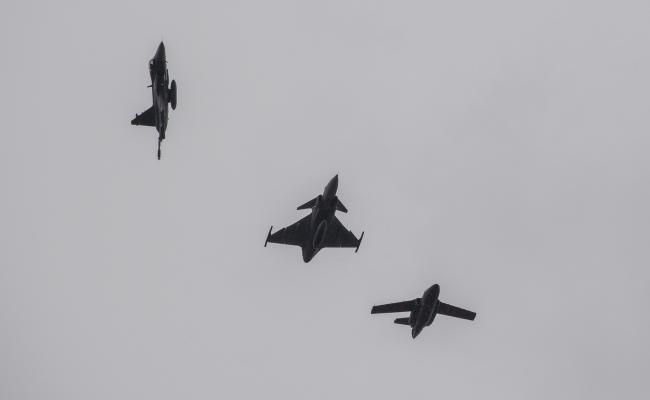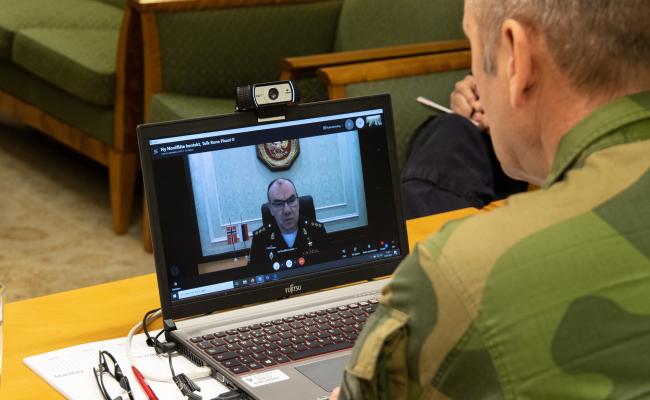Russia Terminates Agreement With Finland on Military Evaluation Visits
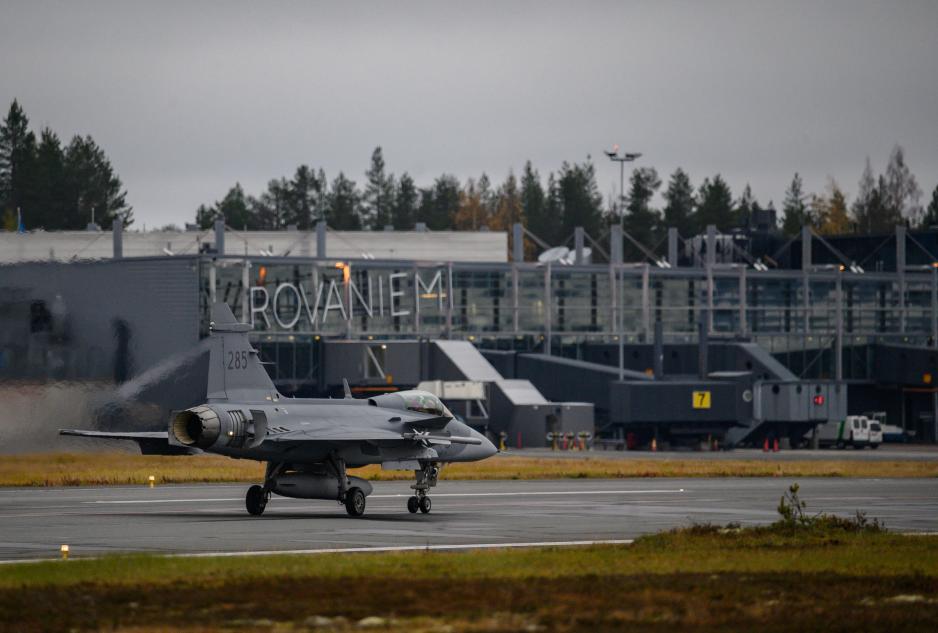
In previous years, Russia has carried out military evaluation visits at i.a. Rovaniemi Air Station to the Lapland Air Command in Northern Finland. Moscow is now withdrawing from the agreement that has made such mutual visits possible. (Photo: Jesper Sundström/the Swedish Armed Forces)
Last Tuesday, Russia announced the termination of a bilateral agreement with Finland on extra military evaluation visits. Before the pandemic, the parties made such visits to each other annually. Thus, yet another trust-building measure in the military field dissolves.
Russia terminates the agreement with Finland on extra military evaluation visits with effect from Thursday the 1st of June. That is announced by the Finnish Ministry of Foreign Affairs in a press release.
Moscow's reasoning for the termination is not mentioned, but is likely connected to Finland's new NATO membership.
Following the agreement, Russia has been able to make annual visits of the type in Finland – and Finland has more specifically been able to carry out annual visits to the former Leningrad military district. This currently consists of Western Military District and the Northern Fleet Military District.
Moscow and Helsinki entered into the bilateral agreement in 2000 – as a supplement to the Vienna Document. The latter is an agreement between 57 member states in the Organization for Security and Co-operation in Europe (OSCE) on trust-building measures in the military field. It is central to conventional arms control.
"The Vienna Document itself is still in force, and Russia’s decision to terminate the bilateral agreement does not affect other measures under the Vienna Document, such as observation and evaluation visits," specifies the Finnish Ministry of Foreign Affairs.
Several mutual visits
The Russian-Finnish agreement was last applied before the pandemic due to Russia's warfare against Ukraine.
In the years 2017 and 2019, Russia carried out evaluation visits to the Karelia Air Command (Southeast Finland) – and in 2016 and 2018 to the Lapland Air Command (North Finland).
For its part, Finland carried out an evaluation in 2016 in Ostrov (Pskov oblast, east of the border with Estonia), in 2017 in Besovets (Republic of Karelia), in 2018 in Sputnik (Murmansk oblast), as well as in 2019 in Luga (Leningrad oblast).
Increased need
Within the OSCE area, there are 23 similar bilateral agreements, such as the Finnish-Swedish one. The area includes all European countries, Turkey, Cyprus, the USA, Canada, and eight post-Soviet states in Central Asia and the Caucasus.
Russia has no similar bilateral agreements within OSCE but participates in two multilateral agreements around the Black Sea region.
"The full implementation of the Vienna Document should be resumed without delay. Finland will work to strengthen the international arms control system, safeguard the functioning of the treaty organisations and to increase security. We emphasise the importance of compliance with arms control agreements and the application of confidence-building measures," writes the MFA and continues:
"There is even greater need for conventional arms control and confidence- and security-building measures in Europe after Russia’s war in Ukraine has ended."
Finland's Foreign Minister Pekka Haavisto (the Green Party) has also recently expressed concern about the future of the OSCE, reports Yle. The backdrop is that Russia and Belarus are blocking Estonia's candidacy for the next chairmanship period in the organization.
Disarmament and arms control
On Monday, Russia’s President Vladimir Putin signed a law on denouncing the Treaty on Conventional Armed Forces in Europe (CFE). The agreement deals with the reduction of such forces and was concluded in 1990 between the NATO countries and the six member states of the then Warsaw Pact.
Russia suspended its participation in the CFE Treaty in 2007 and has now completely withdrawn from it. "The treaty has lost its relevance and does not meet Russia's interests," is the reasoning according to the Kremlin.
The New START Treaty is the last remaining arms control agreement between the US and Russia. It concerns the verifiable reduction and limitation of strategic offensive weapons and was renewed in 2021 – with a duration until 2026. In February, Moscow announced the suspension of the agreement – including inspections from the American side – but that the country will at the same time comply with its limitations.
More specifically, the latter agreement regulates the number of deployed intercontinental and submarine-based ballistic missiles, their (nuclear) warheads and launch platforms, as well as heavy bombers and their nuclear armament.
The INF Treaty between the US and Soviet Russia which banned land-based intermediate-range nuclear rockets broke down in 2019. The withdrawal from the agreement was first announced by Washington with reference to Russian violations. Moscow also withdrew from the agreement shortly after.
The US withdrew from the ABM Treaty with Russia in 2002 on banning the development and deployment of sea, space, or mobile land-based missile defense systems.
Also read
This article was originally published in Norwegian and has been translated by Birgitte Annie Molid Martinussen.


